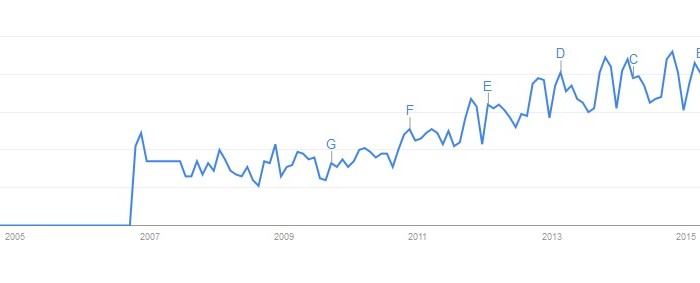The Marriage of the Digital Humanities and Alt-Ac Positions
Each week, a member of the JITP Editorial Collective assembles and shares the news items, ongoing discussions, and upcoming events of interest to us (and hopefully you). This week’s installment is edited by Sarah Ruth Jacobs.
Announcement: This is a reminder that submissions for short, blog-length sections in The Journal of Interactive Technology and Pedagogy are open year-round on a rolling basis. If you would like to share a teaching fail, an opinion, a project blueprint, a tech tool, an assignment, or a review of a book or event, please see the short section submission guidelines.
This year I am one of 20 fellows in the Modern Language Association’s Connected Academics Proseminar, an enrichment seminar for graduate students who are interested in pursuing alternative career paths.
As part of the seminar, participants complete career development and networking activities, including attending group visits at potential employment sites (a more detailed description of what the proseminar entails can be found here).
One of the observations that has come out of the proseminar thus far is how those who are most qualified for alt-ac jobs are those that have had the chance to take on administrative, alt-ac, and technology-related jobs during grad school. In fact, technology skills in particular seem to be high in demand in potential alternative positions for academics.
This makes sense when one considers that the rising profile of alt-ac jobs coincided with the rise of the digital humanities, as well as with the increasingly dire job prospects for new Phd recipients.
Google Trends shows how the popularity of the search term “digital humanities” continually rose since 2007:

Figure 1. Popularity of the Google search term “digital humanities,” where the level over time is relative to the highest part of the chart.
In comparison, the term alt-ac wasn’t coined until 2009, when, as Brenda Bethman and C. Shaun Longstreet note, a Twitter conversation between Bethany Nowviskie and Jason Rhody used “alt-ac” as shorthand for alternative academic (Nowviskie publicized the conversation here).
@nowviskie there are distinct advantages to an alt-ac lifestyle.
— jasonrhody (@jasonrhody) November 20, 2009
However, the notion of academics in non-traditional roles, just like the notion of digital applications for the humanities, preceded their popular terminology. Collin Brooke’s 2005 reflection on being “a technology specialist working in the humanities” would be a fine example.
Just as digital technology is opening up job opportunities across a number of different sectors, it is hardly surprising that academia is one area of tech growth.
In the spirit of alt-ac, I would like to use this roundup to bring attention to a few new and ongoing alt-ac opportunities and resources.
In addition to the MLA’s Connected Academics proseminar for current and recently-graduated doctoral students, the NEH is offering institutional grants for graduate schools to improve their alt-ac student and faculty outreach, or even to change the requirements for the degree to be more alt-ac friendly.
On Twitter, accounts with info on #altac job searches include @altacliberation, @MLAConnect, @VersatilePHD, and @humanistsatwork. Brenda Bethman has a list of resources, and Josh Boldt solicited and received a great list of websites at the bottom of his piece in Vitae.
For reflections, stories, and tips on pursuing alt-ac jobs, check out @altacadvisor, @BeyondAcademia, @Phdsatwork, @0ffthebench, and @GradSquare. MediaCommons also has articles on its #alt-academy site, where Brian Croxall‘s alt-ac guide serves as a great example.
Please tweet to @srujacobs if you would like to add to this list. Thanks!



